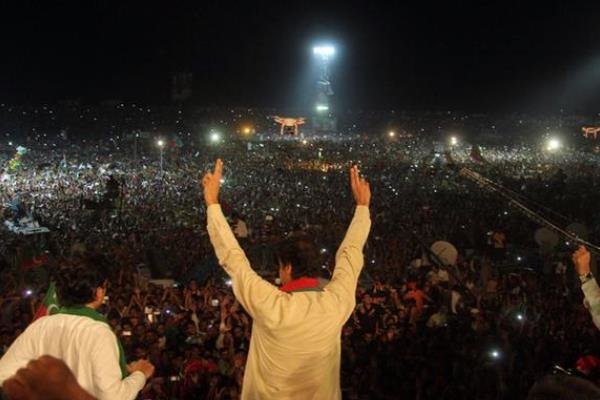A look at the general policy of Pakistani Insaf Party

TEHRAN - Imran Khan will make major changes in the domestic arena, but because the army plays a decisive role, it is unlikely that we will see a tangible change in Pakistan’s foreign policy.
The Pakistani Election Observation Mission has officially announced the results of the four constituencies in the country, according to which the Tehreek-e-Insaf (PTI) party led by Imran Khan, surpassed other parties and won the 2018 Pakistan election by gaining 115 seats in the National Assembly.
The Pakistan Muslim League (PML) of Nawaz Sharif, the party with the 63 seats of the National Assembly of Pakistan, won second place in the elections, and the Pakistan People's Party, PPP, led by Bilawal Bhutto Zardari, won the third place in Pakistan's election with 42 seats. Thus, the future government of Pakistan will be in the hands of Imran Khan and the Tehreek-e-Insaf (PTI) party.
Imran Khan is of Pashtun ethnicity. He is a politician and former cricketer who was educated in Oxford and his party also leads a coalition government in north-western province of Khyber Pakhtunkhwa. Thus, outside of the traditional circle, family power climbed to the highest levels of power, but he, contrary to popular belief, is not a Pashtun nationalist. He has defined his political agenda beyond the ethnic borders and for all the people of Pakistan. That's why even the Baluchis and Hazaras, who are vulnerable in Pakistan, also look forward to the changes promised by Imran Khan.
Imran Khan introduces himself as the architect of "New Pakistan", a country that in his view would be free from corruption and domination of the powerful families, and where all the people of Pakistan will be able to contribute. Imran Khan's popular plans have made him a populist and patriotic politician. His reform policies on combating corruption, poverty alleviation, improvement and development of educational services, implementation of the rule of law, and the development of the power of the central government over autonomous states and free zones have all brought him millions of fans. It seems that he has well-recognized and pointed to the pain of the people of Pakistan. But whether he will be able to find a remedy for these deep wound remains to be seen in the future.
Last year, Pakistan spent days of uncertainty when Khan led a long and widespread anti-government militant demonstration to force the Islamabad government to step down. Subsequently, millions of Pashtun settlers in Pakistan launched a new wave of massive national protests to object to discrimination, injustice against the Pashtuns and their suppression.
Khan enjoys strong Pakistan’s military support to a point that Election Commission of Pakistan claimed the army has cheated the recent election in favor of Imran Khan. However, there was not enough evidence to back up the claim.
Therefore, in Pakistan, despite the election, the army continues to determine the main lines of government policy. That is why, unlike the changes that are expected to occur with the victory of Imran Khan inside the country, foreign policy is not expected to see any tangible changes.
Khan’s foreign policy is different from the PPP and PML. Now, in the wake of the rivalry between Tehran and Riyadh, Khan it is trying to create a balance between the two countries. Therefore, Pakistan's future government will take a more positive and constructive stance on Iran than the PML party.
The Pakistani army had come to the conclusion that it was unable to cooperate with large parties such as the PML of Nawaz Sharif and the PPP of the Bhutto family. Now, with the army supporting Khan and his party, the future of India and Pakistan relationship is getting dire.
In the future, the army's line of policy in foreign policy of Imran Khan will be particularly apparent in the issue of Kashmir against India. In this regard, Kashmir's sovereign independence parties like Lashkar-e-Taiba and Jaish-e-Mohammed also showed strong support for PIT and Imran Khan.
As for the Islamabad and Kabul relations, the same holds true. Pakistan army tries to reach its strategic goals in Afghanistan. Therefore, the heavy presence of the Pakistani army could have a negative impact on the relations between the two countries of Afghanistan and Pakistan in the future.
On the Islamabad-Washington relationship, American policy on direct talks with the Afghan Taliban has brought the Pakistan’s army to make an overall and final assessment of the continued cooperation with Washington.
If Trump’s negotiation with the Taliban comes to an end, then the Pakistani army will definitely make serious changes. These changes are evident to an extent that the Pakistani army has begun relations with China and Russia.
In a nutshell, the new Pakistani government of Imran Khan, backed by the army, will have a close look at Iran, China and Russia relationships. Hence, if Trump continues his policy in the region, the ties between Islamabad and the White House will take a turn for the worse, and that will push Islamabad to replace Washington with Tehran, Beijing and Moscow.
Leave a Comment